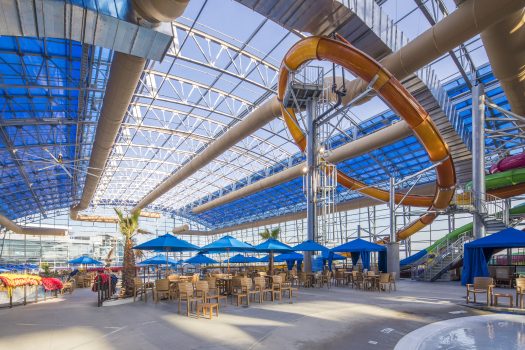H&LA’s Stephen Szczygiel weighed in with Hotel News Now regarding the additional security measures at hotels in the midst of advances in technology and growing safety concerns.
Published by: Hotel News Now/Laura Koss-Feder
Published date: April 2024
Keeping guests and employees safe has always been of paramount concern in the hospitality industry. But, in these somewhat turbulent times in any part of the country, heightened security is particularly important to hoteliers.
Keyless check-in, the use of panic buttons, keeping more entry and exit doors locked, and overall diligence of hotel staff as to guests’ comings and goings are more of the norm these days in properties both big and small.
“We are starting to see more properties implement the use of high-tech camera systems,” said Stephen Szczygiel, senior associate at Hotel & Leisure Advisors.
This is even true in resort settings that cater to families. Some of the indoor water park resorts are implementing camera systems that rival casino surveillance setups and blend artificial intelligence into the technology to monitor guest safety, he added.
There are also new advances to keep employees safe, particularly housekeepers and others who enter guestrooms alone. Many communities are implementing laws that stipulate that housekeepers are equipped with a convenient panic button in the event they feel endangered.
Anaheim, California, is one such community. A new law in Anaheim mandates that hotel workers who enter guestrooms are provided with panic buttons.
The law, which has been in place since Jan. 1, requires workers such as housekeepers or room service to be supplied with personal security devices. When workers experience violent or threatening behavior, they can activate the device to signal their location to hotel management or security. Guests checking into hotels in Anaheim must be notified of the new law.
There are additional security measures being put into place, too.
“I have noticed particularly in my travels out West, where homelessness seems to be more easily observed, that all the hotels I visited had the doors locked and were only accessible by being buzzed in by the front desk or having a key card,” Szczygiel said.
Managing traffic flow of meeting groups and making sure that everyone at a particular hotel event are supposed to be there are crucial concerns when it comes to group business.
Steve Goodman, managing director at Etherio, a full-service association management and corporate meeting planning company, said that some hotels have increased their investment in security to address specific concerns.
Hotels have hired additional security personnel to ensure the safety of guests, employees and the surrounding area. Many hotels have installed surveillance systems to monitor public areas, entrances and exits.
Hotels have also implemented access control measures such as key card systems or security gates to restrict entry to certain areas from guests.
“We have also hired our own security, in addition to collaborating with local authorities, especially when managing high profile or larger events to address security concerns and maintain a safer environment for all of our attendees,” Goodman said.
Security has been an increasing focus for the American Hotel & Lodging Association. The AHLA put in place the 5-Star Promise, a voluntary commitment by its members to enhance policies, training and resources, including employee safety devices, that together are aimed at strengthening safety and security for hotel employees and guests.
Nearly 60 member companies representing an estimated 20,000 hotel properties have made the pledge. As a result, an estimated 1.2 million employees will see increased protection on the job.
Currently, nearly all these hotels have implemented four pillars of the pledge. In addition, more than 5,000 hotels have implemented employee safety devices.
In addition, the AHLA offers properties safety tips that they can pass on to their guests.
These include:
- Don’t answer the door to your guestroom without verifying who it is.
- Keep your room key with you at all times and don’t needlessly display it in public.
- Close the door securely whenever you are in your room and use all of the locking devices provided.
- Check to see that any sliding glass doors or windows and any connecting room doors are locked.
- Don’t invite strangers to your room.
- Be aware of potential phone scams and prank calls to your guestroom.
- Place all valuables in the hotel safe deposit box.
- When returning to your hotel or motel late in the evening, be aware of your surroundings, stay in well-lighted areas and use the main entrance.
- Take a few moments and locate the nearest exit that may be used in the event of an emergency.
- If you see any suspicious activity, notify the hotel operator or a staff member.
Overall, the investment in both hotel security technology and the hiring of live security guards continue to grow every year, said Izzy Kharasch, president of Hospitality Works.
“Many more hotels are doing background checks on all management staff, and some are doing the same for the hourly staff. This is for the safety of both the guests and staff,” Kharasch said.
Because of homelessness in some areas and rising crime in others, many hotels are keeping the front door locked and forcing guests to use their key for access, he added.
Cameras are everywhere in hotels these days — at the front desk, elevators, stairwells, outside the building covering all the doors and the parking lots. Kharasch also noted that many hotels now charge for parking, because they need the security for in-and-out access.


